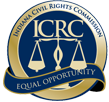Akia Haynes, Deputy Director of the Indiana Civil Rights Commission (ICRC), has issued a Notice of Finding against Farmington Meadows Association, Inc. (Respondent). The charge states that probable cause exists to believe that an unlawful discriminatory practice has occurred (Ind. Code § 22-9, et seq.).
By way of background, Complainant moved into Respondent’s community on or about December 1, 2009. Respondent maintained by-laws prohibiting animals from residing in their units or common areas. However, evidence shows that Respondent amended their by-laws to allow service or assistance animals as long as the tenant making the request provided a written request for a reasonable accommodation to Respondent, “medical evidence” from a licensed physician verifying the need for the animal, proof of the dog’s “training certificate,” veterinary records for appropriate vaccinations, an “affidavit” that the animal has never bitten or attacked another individual or animal, a “form” that the owner would compensate Respondent in the event of harm to the property, and other documentation. On February 16, 2015 and again, on March 25, 2015, Complainant provided a written request for a reasonable accommodation to have an assistance animal. Respondent denied Complainant’s request for the assistance animal based upon a review by an “independent medical doctor.”
Despite Respondent’s assertions, there is insufficient evidence to support its claims. Evidence shows that Respondent unreasonably denied Complainant’s request for a reasonable accommodation. Respondent’s request for evidence verifying specialized training, veterinary records, insurance with Respondent as the insured, and an affidavit is unreasonable and a violation of the applicable housing laws. Therefore, reasonable cause exists to believe that a violation of the law occurred as alleged.
The issue before the Commission is whether Respondent denied Complainant’s request for a reasonable accommodation. In order to prevail, Complainant must show that: 1) she has a disability as defined under the law; 2) Respondent was or should have been aware of Complainant’s disability; 3) she requested a reasonable accommodation necessary to afford her an opportunity to use and enjoy the premises; and 4) Respondent unreasonably denied or delayed the requested accommodation. It is evident that Complainant is a member of a protected class by virtue of her disability and that Respondent was or should have been aware that she had a disability as alleged. Moreover, evidence shows that Complainant requested a reasonable accommodation necessary to afford her the opportunity to enjoy her housing; however, Respondent unreasonably denied Complainant’s request.
A public hearing is necessary to determine whether a violation of the Indiana Fair Housing Act and/or the Indiana Civil Rights Law occurred as alleged.
Click here for official Notice of Findings document.
